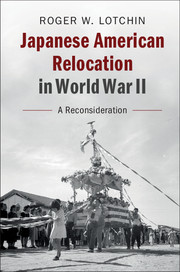Book contents
- Japanese American Relocation in World War II
- Japanese American Relocation in World War II
- Copyright page
- Dedication
- Contents
- Figures
- Preface
- Introduction
- Part I The Reach of American Racism?
- Part II Concentration Camps or Relocation Centers?
- 8 Definitions versus Historical Reality
- 9 Resistance or Cooperation?
- 10 Bowling in Twin Falls
- 11 Food, Labor, Sickness, and Health
- 12 Wartime Attitudes toward Relocation
- 13 Family Life, Personal Freedom, and Combat Fatigue
- 14 Economics and the Dust of Nikkei Memory
- 15 Consumerism
- 16 The Leisure Revolution
- 17 Of Horse Stalls and Modern “Memory”
- 18 Politics
- 19 Culture
- 20 Freedom of Religion
- 21 Education, the Passion of Dillon Myer
- 22 The Right to Know
- 23 Administrators and Administration
- Part III The Demise of Relocation
- Appendix Historians and the Racism and Concentration Center Puzzles: A Compact with Comity by Zane L. Miller
- Bibliography
- Index
10 - Bowling in Twin Falls
An Open Door Leave Policy
from Part II - Concentration Camps or Relocation Centers?
Published online by Cambridge University Press: 24 April 2018
- Japanese American Relocation in World War II
- Japanese American Relocation in World War II
- Copyright page
- Dedication
- Contents
- Figures
- Preface
- Introduction
- Part I The Reach of American Racism?
- Part II Concentration Camps or Relocation Centers?
- 8 Definitions versus Historical Reality
- 9 Resistance or Cooperation?
- 10 Bowling in Twin Falls
- 11 Food, Labor, Sickness, and Health
- 12 Wartime Attitudes toward Relocation
- 13 Family Life, Personal Freedom, and Combat Fatigue
- 14 Economics and the Dust of Nikkei Memory
- 15 Consumerism
- 16 The Leisure Revolution
- 17 Of Horse Stalls and Modern “Memory”
- 18 Politics
- 19 Culture
- 20 Freedom of Religion
- 21 Education, the Passion of Dillon Myer
- 22 The Right to Know
- 23 Administrators and Administration
- Part III The Demise of Relocation
- Appendix Historians and the Racism and Concentration Center Puzzles: A Compact with Comity by Zane L. Miller
- Bibliography
- Index
Summary
- Type
- Chapter
- Information
- Japanese American Relocation in World War IIA Reconsideration, pp. 152 - 166Publisher: Cambridge University PressPrint publication year: 2018



